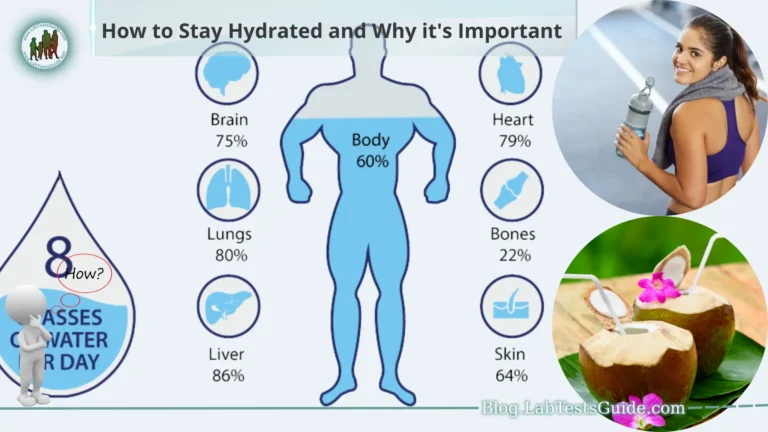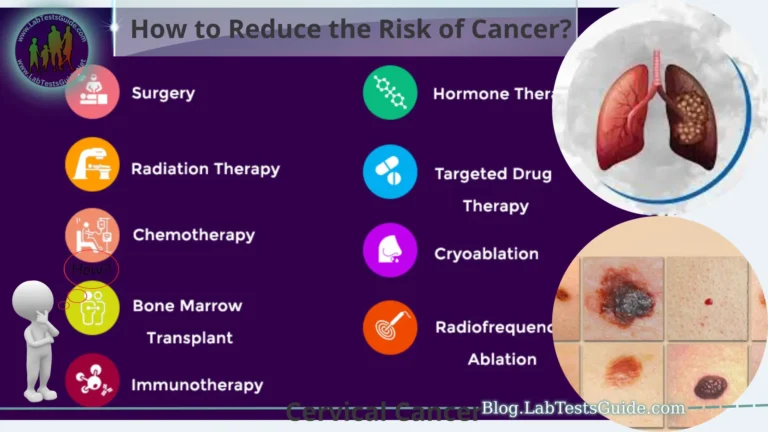Oxytocin, often referred to as the “love hormone” or “bonding hormone,” is a remarkable neuropeptide that plays a vital role in shaping human connections and emotional well-being. This powerful chemical messenger, produced in the hypothalamus and released by the pituitary gland, is not only responsible for enhancing feelings of love and attachment but also influences a wide array of physiological and psychological processes. From promoting social bonding to reducing stress and anxiety, oxytocin is at the heart of what makes us deeply human.

In this comprehensive guide, we will explore the significance of healthy oxytocin levels and how fostering its production can contribute to enriching our relationships, improving mental health, and ultimately leading to a more fulfilling life. Whether you’re seeking ways to enhance your existing relationships or simply striving to boost your overall well-being, understanding and supporting oxytocin’s effects can be a transformative journey towards deeper connections and a happier, more harmonious existence.
What is Oxytocin?
Oxytocin is a neuropeptide and hormone that plays a crucial role in various physiological and psychological processes within the human body. It is produced in the hypothalamus, a region of the brain, and is then released by the pituitary gland into the bloodstream. Often referred to as the “love hormone” or “bonding hormone,” oxytocin is known for its role in promoting social bonding, trust, and emotional connections.
One of the most well-known functions of oxytocin is its involvement in childbirth and lactation. During labor, oxytocin helps to stimulate uterine contractions, aiding in the birthing process. It also facilitates the let-down reflex during breastfeeding, allowing milk to flow from the mammary glands to the nipples to nourish the newborn.
Beyond its reproductive functions, oxytocin is also closely linked to emotional and social behaviors. When released in the brain, it can enhance feelings of love, trust, and attachment. This hormone is associated with promoting bonding between partners in romantic relationships, between parents and their children, and even between friends and social groups. Oxytocin helps strengthen emotional connections and fosters a sense of empathy and understanding towards others.
what is the benefits of healthy oxytocin levels?
Here are some of the key advantages of maintaining optimal oxytocin levels include.
- Strengthening Social Bonds: Oxytocin is often referred to as the “love hormone” or “bonding hormone” because it plays a crucial role in promoting social bonding. It enhances feelings of trust, empathy, and affection, thereby fostering deeper and more meaningful connections with others. Healthy oxytocin levels can lead to more fulfilling relationships with friends, family, and romantic partners.
- Reducing Stress and Anxiety: Oxytocin has been shown to counteract the effects of stress hormones like cortisol. When released during social interactions, it induces feelings of relaxation and reduces anxiety levels. This calming effect can help individuals manage stress more effectively and experience greater emotional resilience.
- Promoting Emotional Well-being: Higher oxytocin levels are associated with increased feelings of happiness, contentment, and overall emotional well-being. It contributes to a positive outlook on life and can help alleviate symptoms of depression or anxiety.
- Supporting Reproductive Health: During childbirth, oxytocin is crucial for inducing uterine contractions and facilitating labor. It also plays a role in promoting lactation and the release of breast milk during breastfeeding, which is vital for the nourishment and health of infants.
- Enhancing Parent-Child Bonding: Oxytocin is instrumental in creating strong emotional bonds between parents and their children. It facilitates the nurturing and protective instincts in caregivers, leading to a secure and loving relationship between parents and their offspring.
- Boosting Immune Function: Studies suggest that oxytocin may have a positive impact on the immune system. It can promote wound healing and reduce inflammation, potentially contributing to overall immune function and health.
- Improving Cardiovascular Health: Some research indicates that oxytocin may have cardioprotective effects by reducing blood pressure and improving heart health. These benefits may be attributed to the hormone’s ability to counteract the stress response.
- Alleviating Pain: Oxytocin has been shown to have pain-relieving properties. It can modulate pain perception and reduce the sensation of discomfort, making it a potential therapeutic option for managing certain types of pain.
- Enhancing Social Skills: Oxytocin has been associated with improved social skills and communication abilities. It may help individuals be more empathetic, responsive, and better at interpreting social cues.
- Supporting Mental Health: Healthy oxytocin levels have been linked to reduced feelings of social isolation and loneliness. Consequently, it may play a role in protecting against certain mental health conditions, such as depression and anxiety.
The Role of Oxytocin in the Body?
The primary functions of oxytocin include.
- Social Bonding: Oxytocin is often referred to as the “love hormone” or “bonding hormone” because of its role in promoting social connections. When released during social interactions, such as hugging, touching, or spending time with loved ones, oxytocin enhances feelings of trust, empathy, and attachment. It contributes to the formation and strengthening of emotional bonds between individuals, whether in romantic relationships, friendships, or parent-child relationships.
- Reproductive Functions: Oxytocin is crucial for reproductive health. During childbirth, it stimulates uterine contractions, assisting in the birthing process. It also helps with the expulsion of the placenta after delivery. Additionally, oxytocin plays a significant role in breastfeeding by triggering the let-down reflex, allowing milk to flow from the mammary glands to the nipples, enabling lactation and nourishing the newborn.
- Stress Reduction: Oxytocin has the remarkable ability to counteract the effects of stress hormones, such as cortisol. When released, it induces feelings of relaxation and reduces anxiety levels. This stress-reducing effect can be particularly beneficial during social interactions, as oxytocin promotes a sense of calm and emotional security.
- Social Recognition and Trust: Oxytocin is involved in the recognition of familiar individuals and plays a role in establishing trust in social relationships. It helps distinguish between familiar and unfamiliar faces, enabling us to form and maintain social bonds with those we know and trust.
- Emotional Regulation: Oxytocin plays a part in emotional regulation, influencing how individuals perceive and respond to emotional stimuli. It can enhance positive emotions such as love, joy, and contentment while reducing negative emotions such as fear and anxiety.
- Maternal and Parental Behaviors: In mothers and fathers, oxytocin contributes to nurturing and caregiving behaviors. It fosters the protective instincts of parents and enhances their bond with their children. Oxytocin’s involvement in parenting is essential for the formation of strong parent-child relationships.
- Wound Healing and Inflammation: Oxytocin may have a role in promoting wound healing and reducing inflammation. Some research suggests that it may aid in tissue repair and contribute to the body’s immune response.
- Social Interaction and Communication: Oxytocin has been linked to improved social skills and communication abilities. It may help individuals become more empathetic, responsive, and better at understanding social cues.
Understanding the Love Hormone’s Effects on Health and Well-being:
Here are some key ways oxytocin affects health and well-being.
- Social Bonding and Emotional Connections: Oxytocin is renowned for its role in promoting social bonding and emotional connections. When released during positive social interactions, such as hugging, touching, or spending time with loved ones, oxytocin enhances feelings of trust, empathy, and attachment. This fosters deeper and more meaningful relationships with friends, family, and romantic partners, providing a sense of security and support.
- Enhanced Immune Function: Oxytocin has been associated with certain immune-boosting effects. It may aid in wound healing and reduce inflammation, potentially contributing to overall immune function and health.
- Mental Health and Emotional Well-being: Oxytocin is linked to improved emotional well-being, leading to increased feelings of happiness, contentment, and reduced symptoms of depression and anxiety. Its role in promoting social interactions and mitigating feelings of loneliness can positively influence mental health.
- Empathy and Social Skills: Oxytocin has been associated with increased empathy and improved social skills. It may help individuals become more attuned to others’ emotions and better at interpreting social cues, leading to more effective and meaningful social interactions.
- Pain Relief: Oxytocin has demonstrated pain-relieving properties. It can modulate pain perception and reduce the sensation of discomfort, potentially providing relief in certain pain conditions.
- Trust and Social Recognition: Oxytocin is involved in recognizing familiar individuals and establishing trust in social relationships. It helps differentiate between familiar and unfamiliar faces, facilitating the formation of meaningful social bonds.
- Therapeutic Potential: Research is exploring the potential therapeutic applications of oxytocin, including its use in treating social anxiety, autism spectrum disorders, and other conditions related to social and emotional difficulties.
Factors Influencing Oxytocin Production:
Here are some key factors that influence oxytocin production.
- Physical Touch and Affection: Physical touch plays a significant role in oxytocin production. Warm, caring touch from loved ones, such as holding hands or giving a comforting embrace, can trigger the release of oxytocin.
- Emotional Intimacy and Trust: Feelings of emotional intimacy and trust are closely linked to oxytocin release. Sharing vulnerable and meaningful experiences with others can foster a sense of trust and connection, leading to increased oxytocin levels.
- Social Support: Having a strong social support network can positively influence oxytocin production. Feeling supported and cared for by friends, family, or a community can contribute to higher oxytocin levels.
- Sexual Activity and Orgasm: Oxytocin levels can surge during sexual activity and orgasm. This hormonal response helps facilitate bonding between sexual partners and promotes a sense of intimacy.
- Positive Social Feedback: Receiving positive social feedback, compliments, or expressions of appreciation can stimulate oxytocin production. Feeling valued and appreciated can lead to increased levels of this hormone.
- Physical Exercise: Regular physical exercise has been associated with higher oxytocin levels. Activities like aerobic exercise and yoga can be particularly effective in promoting oxytocin release.
- Childbirth and Breastfeeding: During childbirth, oxytocin is essential for inducing uterine contractions and facilitating labor. After birth, breastfeeding also triggers oxytocin release, aiding in the bonding between the mother and her newborn.
- Genetic Factors: Individual genetic variations can influence oxytocin production and receptor sensitivity, resulting in differences in how people respond to social and emotional stimuli.
Healthy Lifestyle Habits for Boosting Oxytocin Levels:
Here are some effective lifestyle habits to naturally increase oxytocin production.
- Nurturing Healthy Relationships: Invest time and effort in building and maintaining positive, supportive relationships with family, friends, and romantic partners. Engaging in meaningful conversations and expressing affection can stimulate oxytocin release.
- Physical Affection and Touch: Engage in regular physical affection with loved ones, such as hugging, holding hands, or cuddling. Physical touch has a powerful impact on oxytocin production and can strengthen emotional bonds.
- Practice Active Listening: Show genuine interest in others and actively listen to their thoughts and feelings. Offering empathetic responses and emotional support can promote oxytocin release in both you and the person you’re engaging with.
- Perform Acts of Kindness: Engage in random acts of kindness and altruistic behaviors towards others. Acts of generosity and compassion can trigger oxytocin release and contribute to positive social interactions.
- Spend Time with Pets: Interacting with pets can also stimulate oxytocin release. Petting and playing with animals can evoke feelings of love and connection, leading to increased levels of this hormone.
- Engage in Regular Exercise: Physical activity, especially aerobic exercises like running, swimming, or dancing, can boost oxytocin levels. Aim for regular exercise sessions to reap the benefits for emotional well-being.
- Practice Mindfulness and Meditation: Mindfulness practices and meditation have been shown to promote oxytocin release and reduce stress. Incorporate mindfulness techniques into your daily routine to experience their calming effects.
- Share Positive Experiences: Sharing positive experiences and laughter with others can trigger oxytocin release. Participate in activities that bring joy and create shared memories with loved ones.
- Maintain Healthy Sleep Habits: Quality sleep is essential for hormone regulation, including oxytocin. Aim for consistent and sufficient sleep each night to support overall well-being.
- Express Gratitude: Cultivate a sense of gratitude and express appreciation for the people and things that bring joy to your life. Gratitude exercises can positively impact oxytocin levels and emotional well-being.
- Engage in Creative Arts: Participating in creative activities, such as painting, writing, or playing music, can stimulate oxytocin production. Engaging in creative expression can be a source of joy and connection.
- Join Social Groups and Activities: Engage in social activities or join clubs and groups that align with your interests. Being part of a community and sharing common experiences can boost oxytocin levels.
- Avoid Excessive Stress: Chronic stress can inhibit oxytocin production. Practice stress management techniques, such as deep breathing, yoga, or spending time in nature, to reduce stress levels.
Nutrition and Oxytocin:
Here are some dietary considerations to support oxytocin.
- Adequate Protein Intake: Consuming enough protein is essential for the synthesis of various hormones, including oxytocin. Include sources of lean protein in your diet, such as poultry, fish, tofu, legumes, and nuts.
- Omega-3 Fatty Acids: Omega-3 fatty acids are important for brain health and hormonal balance. Incorporate fatty fish (e.g., salmon, mackerel, and sardines), flaxseeds, chia seeds, and walnuts into your diet to ensure an adequate intake of these beneficial fats.
- Complex Carbohydrates: Opt for complex carbohydrates that provide a steady and sustained release of energy. Whole grains (e.g., quinoa, brown rice, oats) and vegetables are excellent sources of complex carbs that support stable blood sugar levels.
- Healthy Fats: Include sources of healthy fats, such as avocados, olive oil, and coconut oil, in your diet. These fats are essential for hormone production and absorption of fat-soluble vitamins.
- Antioxidant-Rich Foods: Antioxidants help protect cells from oxidative stress, which can impact hormone balance. Consume a variety of fruits and vegetables, particularly those rich in vitamin C (e.g., citrus fruits, bell peppers, berries) and vitamin E (e.g., nuts, seeds, spinach).
- Vitamin D: Vitamin D is involved in hormone regulation and can support overall hormonal health. Get regular exposure to sunlight, and consider including vitamin D-rich foods like fatty fish, fortified dairy products, and mushrooms in your diet.
- Magnesium: Magnesium is an essential mineral that supports numerous bodily functions, including hormone production. Include magnesium-rich foods such as leafy greens, nuts, seeds, and whole grains.
- Zinc: Zinc is important for hormone synthesis and immune function. Consume foods high in zinc, such as oysters, red meat, poultry, beans, and nuts.
- B-vitamins: B-vitamins play a role in energy metabolism and neurotransmitter production. Ensure an adequate intake of B-vitamins through foods like whole grains, legumes, leafy greens, and animal products.
- Stay Hydrated: Drink enough water throughout the day to support overall physiological function, including hormone regulation.
Oxytocin and Its Impact on Mental Health:
Here are some ways in which oxytocin affects mental health.
- Social Bonding and Emotional Well-being: Oxytocin plays a significant role in promoting social bonding and emotional connections. It enhances feelings of trust, empathy, and attachment, fostering deeper relationships with others. Strong social bonds are crucial for mental well-being, as they provide support and a sense of belonging.
- Reducing Social Anxiety: Oxytocin has been investigated for its potential role in reducing social anxiety. Studies have shown that intranasal administration of oxytocin can lead to decreased social anxiety symptoms and improved social interactions, especially in individuals with social anxiety disorders.
- Alleviating Symptoms of Depression: Some research suggests that oxytocin may have antidepressant effects. It can modulate the brain’s reward and pleasure centers, potentially reducing symptoms of depression and promoting a more positive mood.
- Stress Reduction: Oxytocin acts as a counterbalance to stress hormones like cortisol. When released during social interactions, it induces feelings of relaxation and reduces anxiety levels, helping individuals cope with stress more effectively.
- Enhancing Emotional Regulation: Oxytocin is involved in emotional regulation, influencing how individuals perceive and respond to emotional stimuli. It can enhance positive emotions such as love, joy, and contentment while reducing negative emotions such as fear and anxiety.
- Addressing Emotional Empathy: Oxytocin has been linked to increased emotional empathy, enabling individuals to better understand and respond to the emotions of others. This can strengthen social connections and improve communication in relationships.
- Impact on Reward Processing: Oxytocin is associated with the brain’s reward system, which affects motivation and pleasure. It may contribute to feelings of reward and satisfaction in social interactions and positive relationships.
- Potential Therapeutic Use: Research is exploring the potential therapeutic applications of oxytocin in various mental health conditions. For instance, oxytocin administration is being studied as a treatment option for certain psychiatric disorders, such as autism spectrum disorders and post-traumatic stress disorder (PTSD).
The Importance of Self-Care in Oxytocin Regulation:
Here are some Points Importance of Self-Care in Oxytocin Regulation.
- Stress Reduction: Engaging in self-care activities, such as meditation, yoga, or spending time in nature, can help reduce stress levels. As stress is known to inhibit oxytocin release, managing stress through self-care can support healthy oxytocin production.
- Promoting Emotional Well-being: Self-care practices that prioritize emotional well-being, such as journaling, practicing gratitude, or seeking therapy, can positively influence oxytocin regulation. Emotionally healthy individuals tend to have more stable oxytocin levels.
- Building Resilience: Self-care can enhance resilience, which is the ability to cope with life’s challenges and bounce back from adversity. Resilience is linked to better emotional regulation and oxytocin responsiveness in stress-inducing situations.
- Improving Physical Health: Taking care of one’s physical health through regular exercise, balanced nutrition, and sufficient sleep can indirectly influence oxytocin regulation. Physical well-being is interconnected with emotional health and hormonal balance.
- Creating a Safe Space: Engaging in self-care activities can create a sense of safety and security, which is conducive to oxytocin release. Feeling safe and at ease allows oxytocin to promote bonding and social interactions.
- Avoiding Oxytocin Depleting Behaviors: Engaging in unhealthy behaviors, such as excessive alcohol consumption or substance abuse, can deplete oxytocin levels. Practicing self-care involves avoiding such behaviors to maintain hormonal balance.
- Enhancing Social Skills: Some self-care activities, such as mindfulness and communication exercises, can improve social skills and emotional intelligence. These skills can positively impact social interactions and oxytocin release.
- Empowerment and Autonomy: Engaging in self-care empowers individuals to take charge of their well-being and make choices that support their emotional health. Feeling empowered and autonomous can positively influence oxytocin regulation.
Seeking Professional Help and Consultation:
Here are some areas where seeking professional help is beneficial.
- Medical Concerns: If you have concerns about your hormonal health, including oxytocin levels, consulting an endocrinologist or healthcare provider is vital. They can conduct relevant tests, provide a proper diagnosis, and offer appropriate medical interventions if necessary.
- Mental Health Support: If you are experiencing symptoms of depression, anxiety, or other mental health issues, seeking help from a mental health professional, such as a psychologist, psychiatrist, or counselor, can be transformative. They can provide therapy, counseling, or psychiatric medication when needed.
- Relationship Counseling: If you are facing challenges in your relationships or want to enhance your connection with loved ones, seeking relationship counseling or couples therapy can be immensely beneficial. A skilled therapist can facilitate open communication and provide tools to improve relationship dynamics.
- Stress Management: If you’re struggling with stress and its impact on your emotional well-being, consulting with a stress management specialist or counselor can help you develop coping strategies and relaxation techniques.
- Parenting Support: For new parents or those seeking guidance in nurturing healthy parent-child relationships, consulting with a parenting coach or counselor can offer valuable insights and support.
- Social Anxiety or Social Skills Training: If you’re facing difficulties in social interactions or have social anxiety, seeking help from a therapist specialized in social skills training can assist you in building confidence and improving social connections.
- Nutritional Guidance: For optimizing hormonal health and overall well-being through nutrition, consulting with a registered dietitian can provide personalized dietary recommendations and guidance.
- Therapeutic Oxytocin Use: In some therapeutic contexts, such as autism spectrum disorders or PTSD, oxytocin administration might be considered. Consulting with a healthcare provider experienced in these areas can help determine appropriate usage and potential benefits.
- Lifestyle Coaching: If you’re looking to make positive lifestyle changes to support oxytocin regulation and overall health, a lifestyle coach can help you set goals and develop actionable plans.
FAQs:
What is oxytocin, and why is it called the “love hormone”?
Oxytocin is a neuropeptide and hormone produced in the hypothalamus and released by the pituitary gland. It is often called the “love hormone” because of its role in promoting social bonding, trust, empathy, and emotional connections. Oxytocin enhances feelings of love and attachment, leading to deeper and more meaningful relationships with others.
How does oxytocin affect social bonding and relationships?
Oxytocin plays a crucial role in social bonding by promoting emotional connections and trust between individuals. When released during positive social interactions, such as hugging, touching, or spending time with loved ones, oxytocin enhances feelings of affection and strengthens emotional bonds. This fosters deeper and more fulfilling relationships with family, friends, and romantic partners.
Can oxytocin reduce stress and anxiety?
Yes, oxytocin has stress-reducing effects. It counteracts the effects of stress hormones like cortisol, inducing feelings of relaxation and reducing anxiety levels. Engaging in positive social interactions and spending time with loved ones can trigger oxytocin release, helping individuals cope with stress more effectively.
How can I naturally boost oxytocin levels?
Engaging in activities that promote positive social interactions, such as spending time with loved ones, expressing physical affection, and participating in social activities, can naturally boost oxytocin levels. Additionally, practicing stress-reducing activities like meditation, yoga, and mindfulness can also contribute to oxytocin regulation.
What are the potential therapeutic applications of oxytocin?
Oxytocin is being studied for its potential therapeutic applications in various areas, such as social anxiety disorders, autism spectrum disorders, depression, and post-traumatic stress disorder (PTSD). However, more research is needed to fully understand its efficacy and safety in these therapeutic contexts.
Can a balanced diet impact oxytocin production?
While there is no specific “oxytocin-boosting” food, a balanced and nutrient-rich diet can support hormonal health, including oxytocin regulation. Consuming adequate protein, omega-3 fatty acids, antioxidants, and vitamins and minerals can indirectly support healthy oxytocin levels.
How does self-care influence oxytocin regulation?
Practicing self-care, such as stress reduction techniques, nurturing social connections, and prioritizing emotional well-being, can positively impact oxytocin regulation. Feeling safe, secure, and emotionally healthy allows oxytocin to promote bonding and enhance overall well-being.
When should I consider seeking professional help regarding oxytocin or mental health concerns?
If you have specific health concerns related to oxytocin levels or mental health issues such as depression, anxiety, or relationship difficulties, consider seeking help from qualified professionals. Endocrinologists, mental health professionals, therapists, and counselors can provide appropriate assessments, support, and interventions tailored to your needs.
Conclusion:
In conclusion, oxytocin, the “love hormone,” is a remarkable neuropeptide with profound effects on human connections and emotional well-being. Its role in promoting social bonding, trust, and attachment highlights the importance of nurturing meaningful relationships and engaging in positive social interactions. From reducing stress and anxiety to enhancing emotional regulation and improving social skills, oxytocin’s impact on mental health is significant. Incorporating self-care practices, maintaining healthy relationships, and seeking professional support when needed are essential steps in fostering healthy oxytocin regulation and ultimately leading to a more fulfilling and harmonious life. As research continues to unveil the complexities of oxytocin’s functions, the journey to understanding and harnessing its benefits remains a transformative endeavor towards deeper connections and emotional flourishing.






